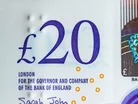Bank of England creates digital currency task force

Unlike popular cryptocurrencies like Bitcoin, a CBDC is a centralised digital currency that functions in practically the same way as fiat currency.
The Bank of England’s (BoE) theoretical digital currency would be used by individuals and businesses as an alternative form of payment that supplements (as opposed to replaces) traditional methods, i.e. cash, bank deposits, etc.
The newly launched task force will ascertain the following:
- The uses, objectives, opportunities and risks of CBDCs
- Practical design features that will allow a CBDC to meet established goals
- A cohesive assessment of CBDC’s overall usefulness in the UK
- International research to ensure the UK’s global competitiveness
Digital currencies: The future of money?
The information released by the BoE establishes a proactive interest in researching CBDCs, yet it also demonstrates a generally inconclusive assessment of their worth and applicability.
Meanwhile, other countries such as China and the Bahamas have gained a headstart in the everyday usage of digital currencies.
In the latter example, the Central Bank of The Bahamas partnered with Mastercard to enable the country’s ‘Sand Dollar’. The bank stated its hope that introducing a CBDC would promote financial inclusion and incentivise alternative payment methods.
“By working closely with the Central Bank of The Bahamas and Mastercard, we are able to issue a prepaid card unlike any other in the world. We are now able to bring immediate, critical benefits to our customers at a time when they are looking to find new, innovative ways to pay,” said Richard Douglas, Co-Founder of Island Pay, a vital tech supplier to the venture.
“The Bahamas is leading innovation in CBDCs (central bank digital currencies), and we’re thrilled to be able to play an important role in helping to democratise access to currency, especially in areas that are currently underserved.”
Bitcoin over gold
Despite world governments’ research into the feasibility of CBDCs, it should be noted that decentralised cryptocurrencies, such as Bitcoin, continue to be favoured for their investment potential as much as their (growing) practical use in transactions.
Last year it was found that 67% of millennials would choose Bitcoin over gold. The limited quantity of Bitcoin makes it a good store of value in digital economies where rampant inflation has demoralised investors.
With digital currencies now being explored by multiple parties in various configurations (Quontic Bank even offers Bitcoin reward accounts), it appears that crypto’s ‘wild west’ period could be coming to an end.

